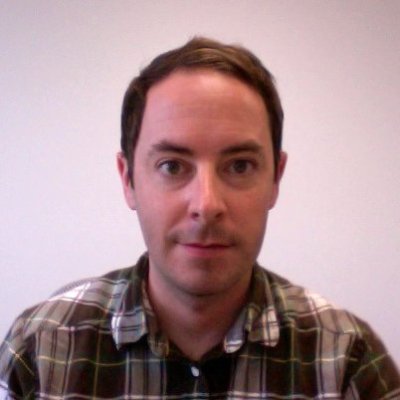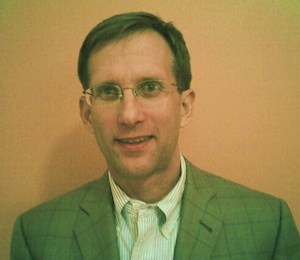 Experts often compare how slowly the health care system is "reforming" to how hard it is to turn a battleship. They're so big that they can't turn on a dime (much less on $3 trillion!), and there is as much risk in trying to oversteer as in not turning at all. Things are changing, we're assured, but it will take time to get on the desired new course. Maybe. But maybe it is time to jump off the obsolete battleship onto something more nimble. Some call it Do-It-Yourself Health (there are both .org and .com sites devoted to the topic, among others). PwC declared it to be one of the top ten trends of 2015. Dave Chase believes that "DIY health reform is now leading the way for the highest performing reform" -- not Medicare, health insurers, not even employers...
Experts often compare how slowly the health care system is "reforming" to how hard it is to turn a battleship. They're so big that they can't turn on a dime (much less on $3 trillion!), and there is as much risk in trying to oversteer as in not turning at all. Things are changing, we're assured, but it will take time to get on the desired new course. Maybe. But maybe it is time to jump off the obsolete battleship onto something more nimble. Some call it Do-It-Yourself Health (there are both .org and .com sites devoted to the topic, among others). PwC declared it to be one of the top ten trends of 2015. Dave Chase believes that "DIY health reform is now leading the way for the highest performing reform" -- not Medicare, health insurers, not even employers...
News
DIY Health to the Rescue
- Login to post comments
- News
Open Source Mesh Networks Defying Corporate Control of Wireless
 PittMesh is a new community-owned wireless network that runs OpenWrt, a widely supported, well documented, open source firmware for embedded systems like WiFi routers. PittMesh routers are owned by individuals and configured in a way that make them work together to build a larger, decentralized network. The project was started by a wireless networking non-profit called Meta Mesh and has been developed by a world-wide coalition of programmers for well over a decade.
PittMesh is a new community-owned wireless network that runs OpenWrt, a widely supported, well documented, open source firmware for embedded systems like WiFi routers. PittMesh routers are owned by individuals and configured in a way that make them work together to build a larger, decentralized network. The project was started by a wireless networking non-profit called Meta Mesh and has been developed by a world-wide coalition of programmers for well over a decade.
- Login to post comments
- News
What Can You do with Open Data?
 Play a word association game and the word "open" will almost surely be followed by "source." And open source is certainly an important force for preserving user freedoms and access to computing. However, code isn't the only form of openness that's important. Open data has been discussed for at least a decade. At the OSCON conference in 2007, Tim O'Reilly kicked off a bit of a ruckus when he suggested that open data might actually be more important than open code. Open data in this context mostly referred to the ability to export the user-created "Web 2.0" data, which was becoming important at that time. Tim Bray, then at Sun Microsystems, highlighted the issue when he wrote...
Play a word association game and the word "open" will almost surely be followed by "source." And open source is certainly an important force for preserving user freedoms and access to computing. However, code isn't the only form of openness that's important. Open data has been discussed for at least a decade. At the OSCON conference in 2007, Tim O'Reilly kicked off a bit of a ruckus when he suggested that open data might actually be more important than open code. Open data in this context mostly referred to the ability to export the user-created "Web 2.0" data, which was becoming important at that time. Tim Bray, then at Sun Microsystems, highlighted the issue when he wrote...
- Login to post comments
- News
Open Source Projects Are Transforming Machine Learning and AI
 Machine learning and artificial intelligence have quickly gained traction with the public through applications such as Apple’s Siri and Microsoft’s Cortana. The true promise of these disciplines, though, extends far beyond simple speech recognition performed on our smartphones. New, open source tools are arriving that can run on affordable hardware and allow individuals and small organizations to perform prodigious data crunching and predictive tasks.
Machine learning and artificial intelligence have quickly gained traction with the public through applications such as Apple’s Siri and Microsoft’s Cortana. The true promise of these disciplines, though, extends far beyond simple speech recognition performed on our smartphones. New, open source tools are arriving that can run on affordable hardware and allow individuals and small organizations to perform prodigious data crunching and predictive tasks.
- Login to post comments
- News
Halamaka Takes a Deep Dive on the MACRA NPRM
 As promised last week, I’ve read and taken detailed notes on the entire 962 page MACRA notice of proposed rulemaking (NPRM) so that you will not have to. Although this post is long, it is better than the 20 hours of reading I had to do! Here is everything you need to know from an IT perspective about the MACRA NPRM...What is the MACRA NPRM trying to achieve with regard to healthcare IT? The MACRA NPRM proposes to consolidate components of three existing programs, the Physician Quality Reporting System (PQRS), the Physician Value-based Payment Modifier (VM), and the Medicare Electronic Health Record (EHR) Incentive Program for eligible professionals (EPs), creating a single set of reporting requirements. The rule would sunset payment adjustments under the current PQRS, VM, and the Medicare EHR Incentive Program for eligible professionals...
As promised last week, I’ve read and taken detailed notes on the entire 962 page MACRA notice of proposed rulemaking (NPRM) so that you will not have to. Although this post is long, it is better than the 20 hours of reading I had to do! Here is everything you need to know from an IT perspective about the MACRA NPRM...What is the MACRA NPRM trying to achieve with regard to healthcare IT? The MACRA NPRM proposes to consolidate components of three existing programs, the Physician Quality Reporting System (PQRS), the Physician Value-based Payment Modifier (VM), and the Medicare Electronic Health Record (EHR) Incentive Program for eligible professionals (EPs), creating a single set of reporting requirements. The rule would sunset payment adjustments under the current PQRS, VM, and the Medicare EHR Incentive Program for eligible professionals...
- Login to post comments
- News
The Postmodern EHR: The Data Layer
 This second approach entails defining a data layer, which is the most important aspect of the Postmodern EHR architecture from my previous post. Why is this the most important layer? Most healthcare organizations are beginning to realize that their data is more valuable than their applications. Data has become a key asset, since good data is key to improving outcomes, managing chronic disease and enabling population health management. And it needs to be managed for the lifetime of the patient. Which application is going to last that long? What happens to health data when we switch applications?
This second approach entails defining a data layer, which is the most important aspect of the Postmodern EHR architecture from my previous post. Why is this the most important layer? Most healthcare organizations are beginning to realize that their data is more valuable than their applications. Data has become a key asset, since good data is key to improving outcomes, managing chronic disease and enabling population health management. And it needs to be managed for the lifetime of the patient. Which application is going to last that long? What happens to health data when we switch applications?
- Login to post comments
- News
European Union Pushing Ahead in Support of Open Science
 April saw lots of activity on the open science front in the European Union. On April 19, the European Commission officially announced its plans to create an “Open Science Cloud”. Accompanying this initiative, the Commission stated it will require that scientific data produced by projects under Horizon 2020 (Europe’s €80 billion science funding program) be made openly available by default. Making open data the default will ensure that the scientific community, companies, and the general public can enjoy broad access (and reuse rights) to data generated by European funded scientific projects.
April saw lots of activity on the open science front in the European Union. On April 19, the European Commission officially announced its plans to create an “Open Science Cloud”. Accompanying this initiative, the Commission stated it will require that scientific data produced by projects under Horizon 2020 (Europe’s €80 billion science funding program) be made openly available by default. Making open data the default will ensure that the scientific community, companies, and the general public can enjoy broad access (and reuse rights) to data generated by European funded scientific projects.
- Login to post comments
- News
Health Care Is Better as a Game
 So many counter-intuitive findings recently. For example, a new study claims 7 of the 10 most profitable hospitals in the country are "non-profit." Let me say that again, most profitable hospitals in the country are usually nonprofit. Or, despite the drive to improve surgical quality by limiting surgeries at low volume hospitals, it appears that the relationship between volume and patient outcomes is not as clear as had been thought, once "more advanced statistical modeling" is used to analyze the data. Wait, what? Either one of these would be a good topic to write about, and many others have done so already (e.g., KHN and Modern Healthcare, respectively)...
So many counter-intuitive findings recently. For example, a new study claims 7 of the 10 most profitable hospitals in the country are "non-profit." Let me say that again, most profitable hospitals in the country are usually nonprofit. Or, despite the drive to improve surgical quality by limiting surgeries at low volume hospitals, it appears that the relationship between volume and patient outcomes is not as clear as had been thought, once "more advanced statistical modeling" is used to analyze the data. Wait, what? Either one of these would be a good topic to write about, and many others have done so already (e.g., KHN and Modern Healthcare, respectively)...
- Login to post comments
- News
Getting Health IT on the Blockchain Bandwagon
 Face it: health care IT infrastructure is a mess. After spending tens of billions of dollars to "incent" providers to move to EHRs, they're using them but are not very happy with them. In a world in which health IT systems should help improve patient care, they're seen more as a burden than as an asset. We now have millions of electronic records that are still way too siloed, and all too often incomplete. Worse yet, when those records aren't being hacked, they are being held captive by ransomware. Enter blockchain.
Face it: health care IT infrastructure is a mess. After spending tens of billions of dollars to "incent" providers to move to EHRs, they're using them but are not very happy with them. In a world in which health IT systems should help improve patient care, they're seen more as a burden than as an asset. We now have millions of electronic records that are still way too siloed, and all too often incomplete. Worse yet, when those records aren't being hacked, they are being held captive by ransomware. Enter blockchain.
- Login to post comments
- News
OSEHRA 2016 Summit to Address Global Open Health IT Issues as well as the Future of VistA, eHMP and the VA's Veteran's Centric Strategy
 The 2016 OSEHRA Summit to be held June 27-29 is sixty days away, and we are very excited about the way it has come together...We will open the Summit on Monday afternoon with the Global Open Health Informatics Workshop. There we will hear about the progress of many programs, including those in India, Saudi Arabia, the United Kingdom, Slovenia and the Hashemite Kingdom of Jordan. This workshop will also address technical issues supporting the global deployment of open source EHRs.
The 2016 OSEHRA Summit to be held June 27-29 is sixty days away, and we are very excited about the way it has come together...We will open the Summit on Monday afternoon with the Global Open Health Informatics Workshop. There we will hear about the progress of many programs, including those in India, Saudi Arabia, the United Kingdom, Slovenia and the Hashemite Kingdom of Jordan. This workshop will also address technical issues supporting the global deployment of open source EHRs.
- Login to post comments
- News